Overview
Institutional strengthening and capacity building is a fundamental component of any forward-thinking organisation. Capacity development is an essential element of any process of change and transformation, be it individual, organisational, or societal. The Agency has undertaken various institutional and human capacity-building programmes to strengthen the implementation of the GGW programme. Thereby promoting sustainable land management within the poverty reduction framework in dryland Nigeria. Capacity building, knowledge, and skills at the Federal, State and Local Community level for effectively implementing the GGWI is part of the Mandate of the Agency.
The main objective of institutional strengthening and capacity development include.
- Building the capacity of staff through training to enhance their performance is an important strategy to achieve the aim of the GGW programme in Nigeria.
- Recognising the significance of science and technology in driving the implementation process of the GGW programme;
- Ease of Identifying appropriate mechanisms for tackling environmental problems.
- provides the Agency with the opportunities to broaden its horizon and capacity to address the ecological challenges threatening the sustainable development of the drylands of Nigeria.
Capacity training workshop on baseline map and opportunity mapping for the Geographic Information System Staff for improved decision-making and monitoring of GGW programs was organised by the United Nations Environmental Program.
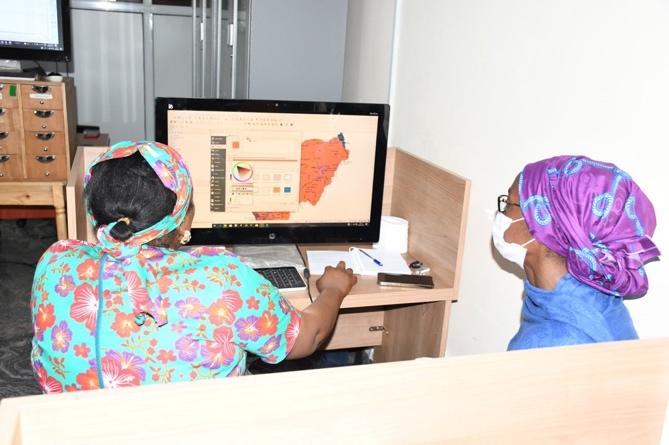
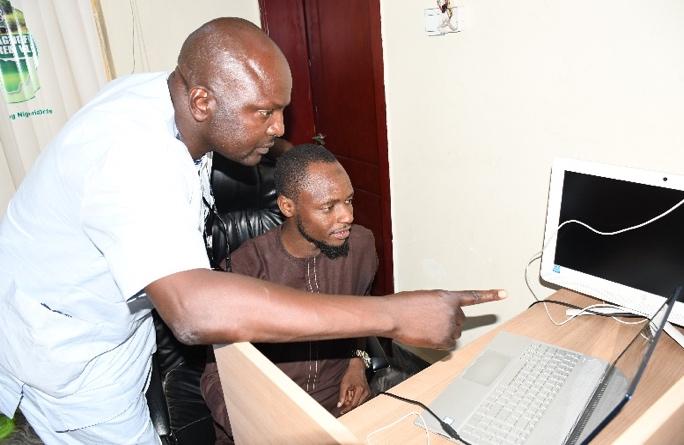
Intending to change the narrative of the Agency in the digital space, the Agency has initiated a process of developing a strategic digital transformation plan/framework by benchmarking international best practices.
Training on basic social media usage was conducted for key Officers with the Agency to sensitise the public on the effect of climate change, especially as it concerns the operational areas.
A software (enterprise information system) has been designed to provide staff a secure platform to create electronic memos, submit different kinds of reports, create work plans, seek approvals, submit their leave requests and requisitions and report dashboards with a button click. These initiatives are geared toward the need for a transparent culture.
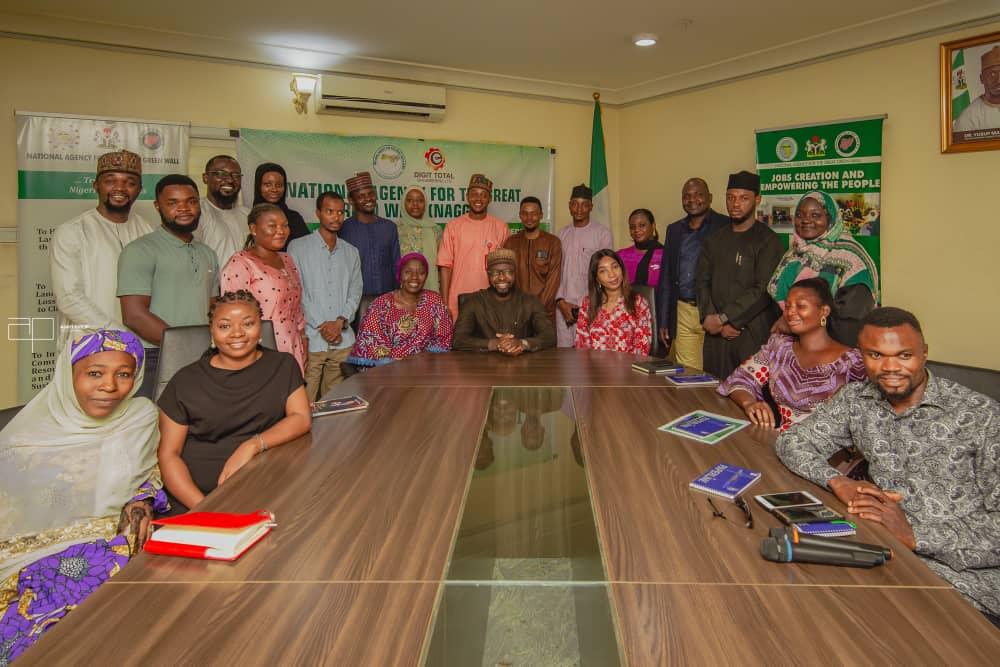
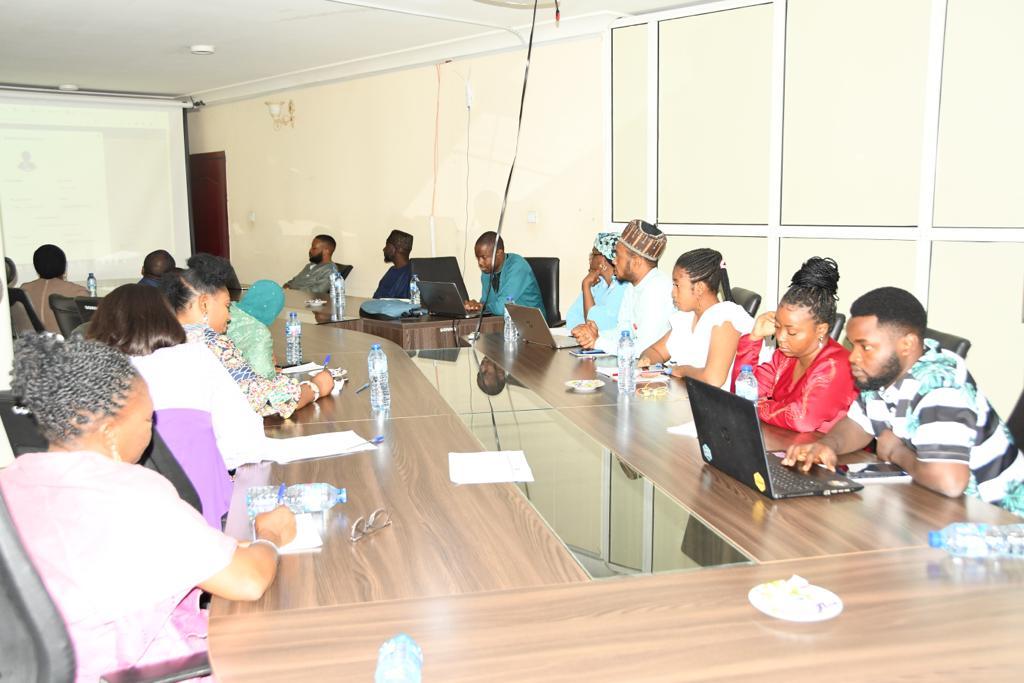
NAGGW Data Center located at the Head Office Complex
To Enhance information sharing and collaboration, the Agency set up a data centre at the Headquater. The GGW data centre serves as a control room for all ICT-related equipment.
It houses computing facilities like servers, routers, switches, firewalls, and supporting components like backup equipment, fire suppression facilities, air conditioning, and complementary power supply. In compliance with the Federal Government’s directive, the Agency procured the services of Galaxy Backbone Limited to provide Internet Services for the Agency. The Internet connectivity will provide the Agency with access and information to the global environment and online resources.
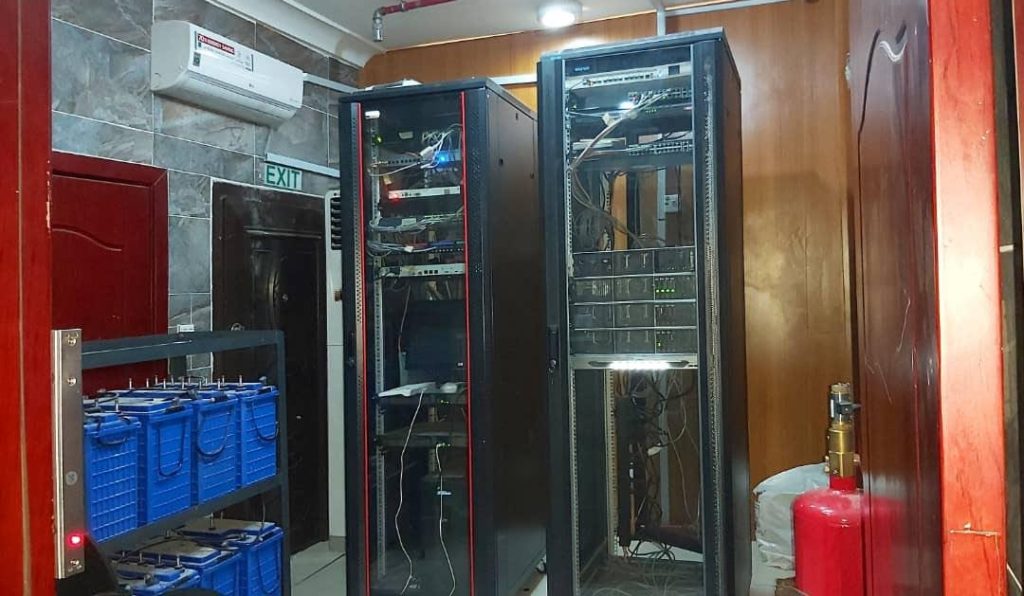
Establishment of E-Library
The overall objective of the library is to enhance the NAGGW staff’s capacity to implement the GGW initiative, help in the viability of information and ease research. Users can access over 1000 publications on dryland management, climate change and other environmental issues.

Establishment of a Geography Information System (GIS) Laboratory
As part of the effort to achieve its mandate and in response to the need for up-to-date information, NAGGW established its GIS Laboratory at its headquarters in Abuja to enhance monitoring and evaluation processes. The GIS is an important information tool for supporting the implementation of the GGW programme and monitoring all interventions implemented to combat desertification and enhance the living conditions of the affected people in the drylands of Nigeria.

Recognising the significance of science and technology in driving the implementation process of the GGW programme, the NAGGW commenced the promotion of accessing and using appropriate technology, particularly in tree seedling production, sand dune fixation and dryland agriculture. The Agency has therefore planned to establish joint research activities with some research institutions in Nigeria, namely Bayero University Kano, Federal University, Dutse, Yobe State University, Damaturu, University of Maiduguri, Maiduguri, and Ahmadu Bello University, Zaria.
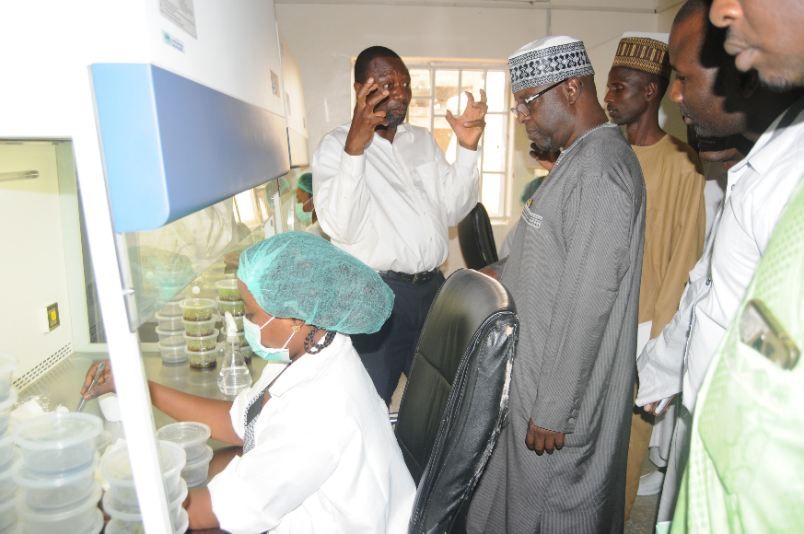
In 2017 some of the Agency’s officers attended various training programmes within and outside the country to catch up with the new trend in dryland management. Institute of Geography & Ecology, Urumqi, China – Technology of Combating Desertification; Konya & Mersin, Republic of Turkey – International Training Course on Combating Desertification in Turkey, Riez Continental Hotel, Abuja – Use of Collect Earth for Biophysical Assessment of Drylands, Nashera Hotel & Conferences, Morogoro, Tanzania – Strengthening Forest and Farm Producers Organization were amongst the various training programmes attended by the Staff of the Agency.
Installation of Automatic Weather Station (AWS)
AWS is an integrated system of components that are used to measure, record, and often transmit weather parameters such as temperature, wind speed and direction, solar radiation, and precipitation. Two automatic weather stations were installed in 2017 at APCU in Kano and NEAZAP in Gashua, Yobe State. The two automatic weather stations are expected to measure several meteorological parameters required for planning and implementing the GGW programmes/projects and serve as Drought Early Warning Systems. Each AWS has various sensors to satisfy the GGW programme’s needs. These include wind speed and direction, Air temperature and relative humidity, rain gauge, and solar radiation. Each weather station has been provided with laptop computers for data retrieval, download, analysis, and transmission.

